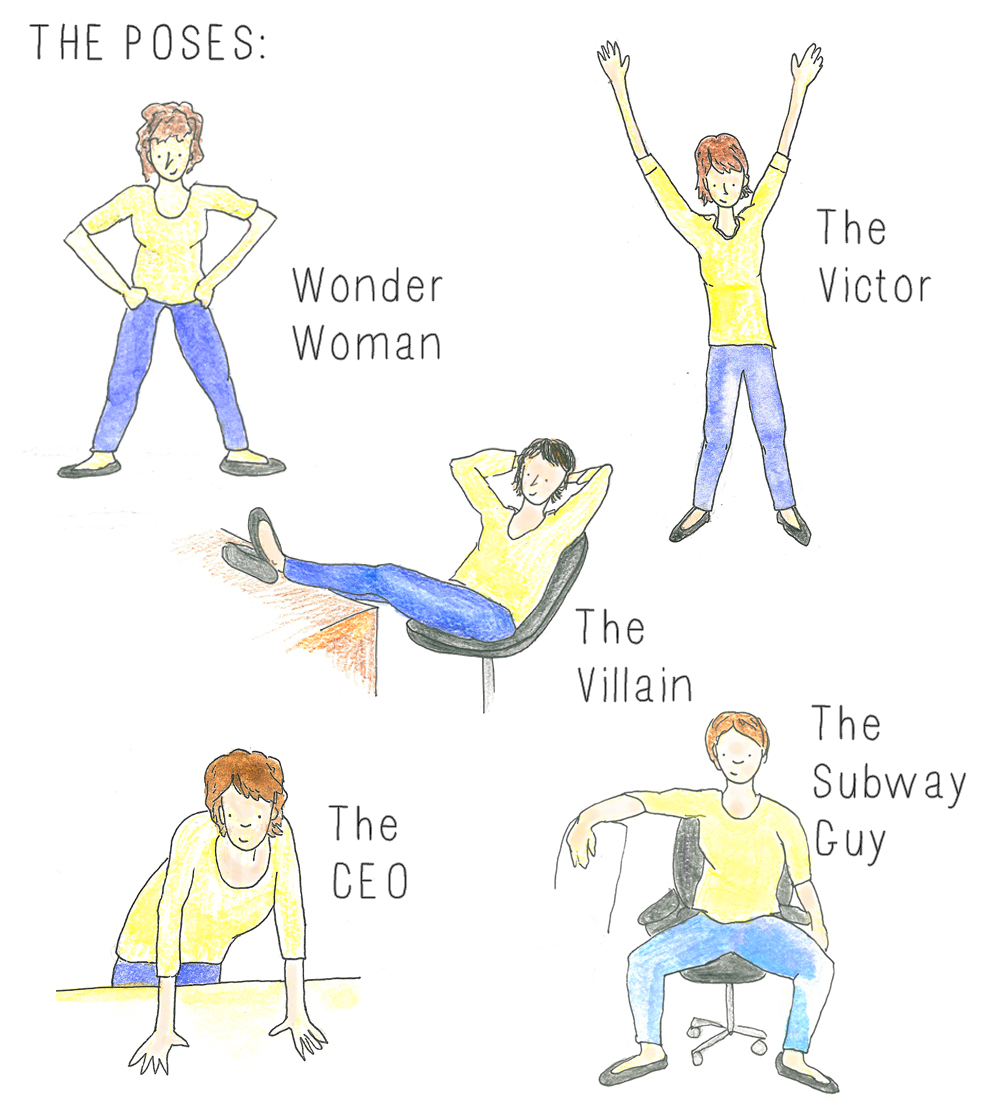Tom Bartlett’s article ‘Strike a Pose’ in the Guardian 4th Jan 2017 has highlighted the academic challenges to Amy Cuddy’s well known work on Power Poses, most famously communicated in her 2012 TED Talk. The study she conducted with Dana Carney and Andy Yap describes that if you strike a powerful body pose and hold it for 2 minutes you will release Testosterone, making you more confident and willing to take risks, and suppress the stress hormone Cortisol. The idea that you can lock yourself away in the loo and come out 2 mins later feeling confident, powerful and strong-minded is amazingly attractive to all of us who suffer from nerves when confronting a difficult conversation or a big presentation. Amy Cuddy seemed to have the answer!
Now it appears there is some doubt.
Bartlett references a study done by Post doc student Eva Ranehill at the University of Zurich replicating the study this time with a bigger sample of 200 people – four times more than the original. This time there were no hormonal changes and no increased desire to take risks in a gambling game.
Bartlett quotes Cuddy’s qualification of her work since she has been challenged - ‘Via email, Cuddy held firm to what she has said in her public statements. “Hormones are not the primary emphasis in any of my work – my book, my research, or my teaching,” she wrote. “I simply encourage people to look at the entire evolving body of evidence, across disciplines, when trying to sort out how these complex relationships among posture and movement, social stimuli, nervous system responses, hormones, and so on, are or are not related.”
So, does this mean that Power Posing is pointless?
My take, having read Bartlett’s well researched article, is that hormones are ‘in the mix’ - but we cannot say that there is a hard and fast cause and effect with power poses on their own.
I still think that if you ‘fake it to make it’ – you are going to have a positive effect. Ranehill’s study reported that “Consistent with the findings of Carney (Cuddy & Yap) et al, our results showed a significant effect of power posing on self-reported feelings of power.”
At React we reference a ‘Circle of Confidence’ - a model that asserts that if we send out signals via body and voice, others are going to respond to us based on the evidence we show them – we, in turn, notice how others respond to us – and that informs how we feel and act. In other words, behaviour breeds behaviour – and who knows, that behaviour may result in hormones being released.
I still like Cuddy’s line, “Bringing Your Boldest Self to Your Biggest Challenges”. It seems a shame to ‘dump’ her work out of hand when many people have had benefit from it – even if there is an element of placebo effect?
Imagine as an actor pumping yourself up both physically and mentally to play an aggressive character. I am pretty sure I am releasing testosterone into my system when I do that. But preparing to act in that way is not just about the physical pose – but also the mindset that comes with it!
And I think that is my best answer to the questions raised by Bartlett’s article - “Maybe it is not just about the physical pose – but also the mindset that comes with it!”
Back to all articles

